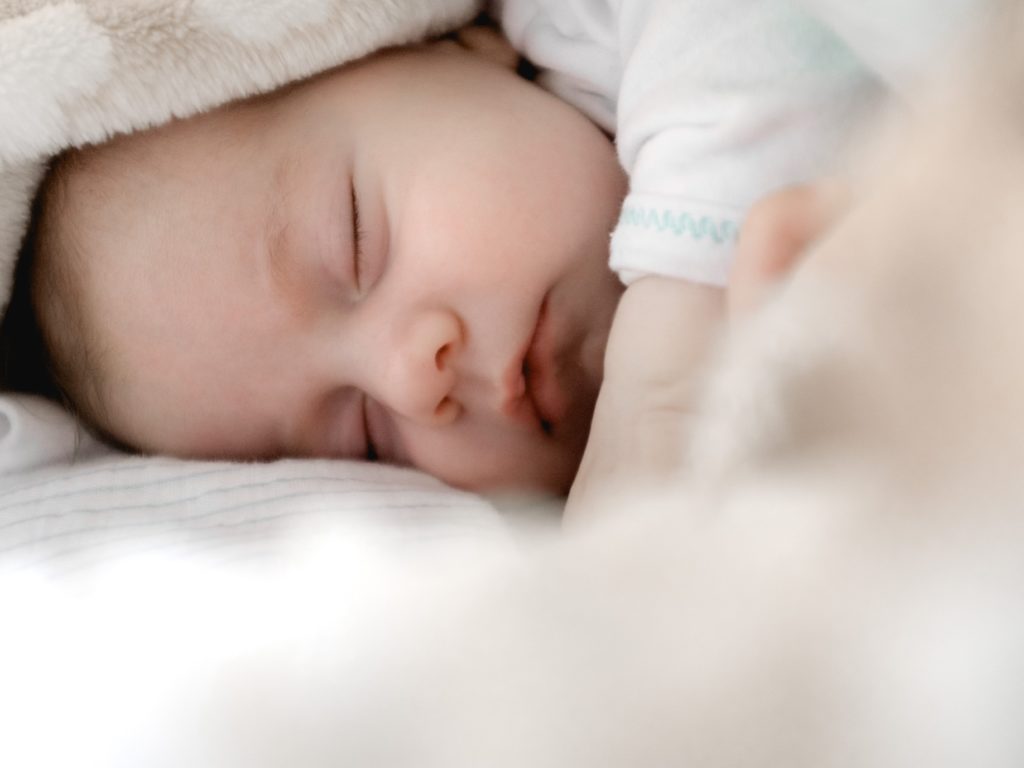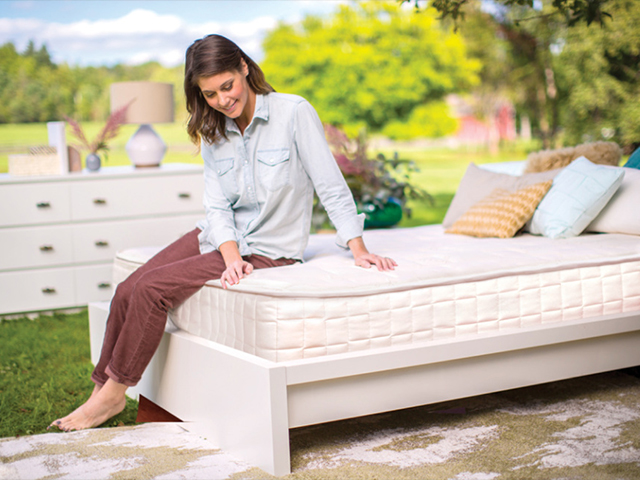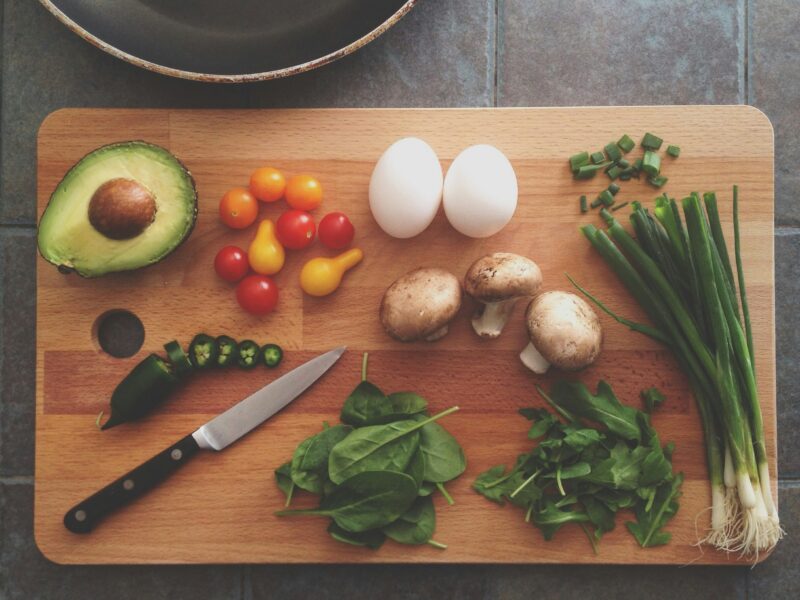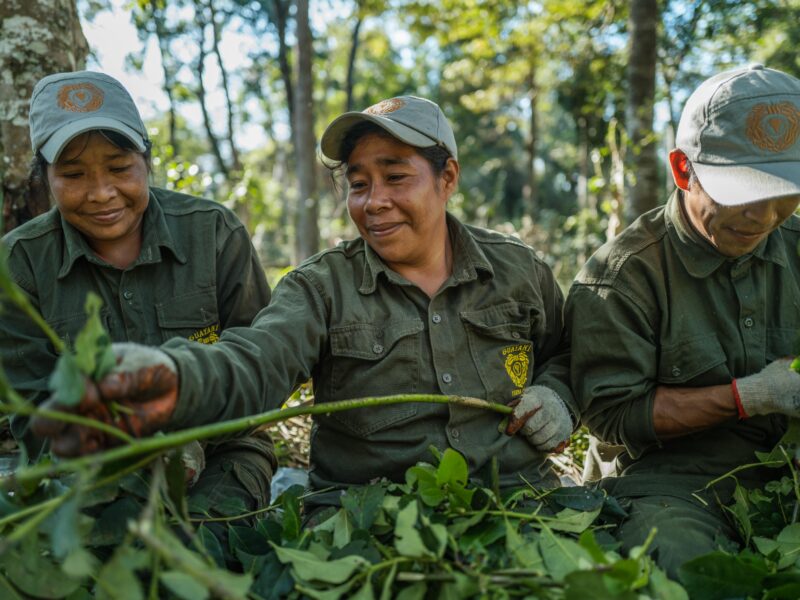When people think of organic, they tend to associate it most with food, not necessarily textiles or other products. But the term can also apply to beds and bedding.
You spend about a third of your life in bed – six to 10 hours a day – so it’s just as important to prioritize the things you sleep in and on.
Bad sleep is bad for your health
A good night’s rest is important for your health. Numerous studies link loss of sleep or poor-quality sleep to serious health concerns. Mental health issues like depression are closely linked to poor sleep quality and sleeping disorders. Roughly 90% of people with depression complain about sleep quality. Poor sleep is even associated with an increased risk of death by suicide.
But it’s not just mental health that suffers in people who don’t get enough sleep. The entire body needs it. Sleep quality and duration can have a major effect on many health risk factors, including heart disease.
Studies show that even a small loss of sleep has been shown to impair immune function – something important to keep in mind as we try to improve and maintain our health and immune system during a pandemic.
People who get less than six hours of sleep a night have repeatedly been shown to be at an increased risk of Type 2 diabetes – one of the comorbidities that have been a hot topic this year because they play a big role a person’s ability to fight off serious health concerns relating to Covid-19.
How to ensure healthy sleep
How can you make sure you get a good night’s sleep? There are many things that can interfere with sleep. We are going to focus on a couple of factors, namely, chemical-laden beds and bedding. The best way to get a good night’s rest is to skip the chemicals and choose certified organic.
Any crop used for organic textiles must comply with organic regulations, just like organic food products do. But a certified organic textile product carries a label that’s different from the USDA organic logo usually seen on food. For textiles, Global Organic Textile Standard (GOTS) is more common.
A GOTS product must meet stringent milling, processing, dyeing, printing, and labor standards. The manufacturer must use low-impact dyes and inks with on-site wastewater treatment. Workers must be ensured safe working conditions and a living wage.
Chances are that some of your bed, bedding, and pajamas are made with cotton, one of the oldest known crops in the world. It became more common around the 19th century with the industrialization of textiles, and today, more than a third of all textiles are made of cotton.
Cotton crops are heavily sprayed with toxic chemicals and synthetic, conventional agricultural inputs. But the problem isn’t just the pesticides – currently, 87 percent of U.S. cotton acres are planted with genetically engineered seeds.
Conventional beds
The main concern with conventional beds is that they contain dangerous chemicals such as flame retardants, formaldehyde, and benzene, which have been linked to infertility, developmental brain disorders, and cancer. If your mattress is emitting harmful chemicals, you are breathing them in the entire time you’re sleeping – or even just in bed.
Organic beds
Organic mattresses are made from premium materials like organic cotton, wool, and latex, which are harvested and processed without harmful chemicals.
Some mattresses are not 100 percent organic. Even the most eco-friendly beds may contain coils, adhesives, small hardware parts, and other components that are at least partly synthetic. In other cases, organic materials may be used to construct the mattress entirely.
Make sure to look at all the materials used to get exactly what you want in your mattress.
Depending on the type of mattress you choose, consider these certifications:
- Global Organic Textile Standard (GOTS)
- Organic Content Standard (OCS)
- Global Organic Latex Standard (GOLS)
In the past, it was tough to find organic food, textiles, and materials. But organic beds and bedding are easier to locate now, thanks to consumer demand.
Below are our recommendations for organic beds and bedding.
Organic mattress brands
Each mattress company is different, but they all sell organic products, some are GOTS certified and others are not. Here is a collection of some of our favorites:
Conventional bedding
What we choose to put onto our bodies matters just as much as what we put into it. Skin is the largest organ, so it’s the primary organ for absorption.
When it comes to bedding, the toxins in conventional textiles can include synthetic pesticides and herbicides, formaldehyde, heavy metals, and chlorine bleach, not to mention the petrochemicals used to make polyester, nylon, and acrylic.
Organic bedding
When you choose a certified organic sheet, blanket, or pillowcase, you know it’s free from toxic chemicals. Just like organic foods, organic textiles are better for you and the soil, waterways, air, farmers, and pollinators. As Marci Zaroff, founder of ECOfashion Corp., says, “Every GOTS purchase you make improves your own health, the health and livelihoods of farmers and workers, biodiversity, air, water, and soil quality.”
But it doesn’t stop there.
A certified organic textile product must meet stringent milling, processing, dyeing, printing, and labor standards.
Top 10 organic bedding brands:
- Naturepedic
- Avocado
- Delilah Home
- Pact
- Farm To Home
- Grund
- Coyuchi
- Under The Canopy
- Boll and Branch
- Sol Organic
The organic food and fiber market will continue to grow due to increased demand for toxic chemical-free products. The non-food organic sector has expanded more than 10% per year in the past several years, and we anticipate that people will turn even more to sustainable options.
The more you demand organic, the more brands will hear you and work with farmers to convert from conventional to organic cotton, increasing the overall supply. This, in turn, lowers prices – and makes organic more accessible to all while protecting people and the environment.
Our aim at Only Organic is to shed light on why it’s always smarter to skip the chemicals and just go with organic. We hope you make the switch and enjoy the sweet dreams you’ll get in your new organic bed and bedding.
What is the value of the U.S. organic cotton market?
Organic fiber continues to be the largest and fastest-growing sector in the U.S. organic non-food industry (including organic textiles, household products, personal care products, supplements, pet food and flowers). According to the Organic Trade Association’s 2021 Organic Industry Survey, organic fiber product sales increased five percent over 2019 to $2.1 billion in 2019–with most of those sales in organic cotton. The category now has a penetration rate into the total U.S. fiber market of 0.9%. Overall, sales of organic food and non-food products in the U.S. totaled a new record of nearly $62 billion in 2019, up over 12 percent from the previous year.[1] Increasing consumer awareness and the growing knowledge that what we put on your body is as important as what we put init are driving growth in the organic textiles and fiber market.
From 9/8 to 10/24 we are hosting an organic bedding giveaway. We’ve teamed up with Naturepedic to offer you an amazing giveaway!










